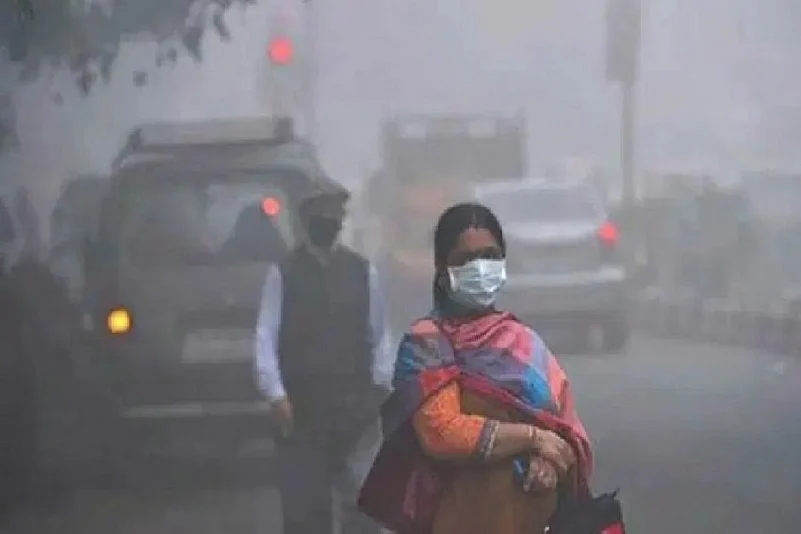Delhi's air quality turned "severe" on Diwali with stubble burning accounting for 32 per cent of the city's PM2.5 pollution and calm winds worsening the situation as they allowed accumulation of pollutants, weather officials said.
Officials at the Ministry of Earth Sciences' said, "Even a small increase in local additional emissions is likely to have significant deterioration impact on Sunday and Monday." The ministry’s air quality monitoring system, SAFAR, reported high levels of PM10 and PM2.5 are expected to be present in the atmosphere between 1 am and 6 am in case of additional internal emissions. However, earlier, it had said that the PM2.5 concentration in Delhi on Diwali is likely to be the "lowest" in the last four years if no firecrackers are burnt. The city recorded an overall AQI of 414 on Saturday, which falls in the "severe" category. The 24-hour average AQI was 339 on Friday and 314 on Thursday.
Delhi recorded a 24-hour average AQI of 337 on Diwali last year (October 27), and an AQI of 368 and 400 on October 28 and October 29 last year. Thereafter, pollution levels remained in the "severe" category for three days on the trot.
In 2018, the 24-hour average AQI (281) on Diwali was recorded in the "poor" category. It deteriorated to 390 the next day and remained in the "severe" category on three consecutive days thereafter. In 2017, Delhi's 24-hour average AQI on Diwali (October 19) stood at 319. It, however, slipped into the "severe" zone the next day.
This time, the India Meteorological Department has said that a fresh western disturbance is likely to increase the wind speed and improve the air quality in Delhi-NCR post Diwali. Light rain is likely on Sunday under the influence of a western disturbance. It is still to be seen if it is enough to wash away pollutants, Kuldeep Srivastava, the head of the IMD's regional forecasting centre, said. "However, Delhi-NCR's air quality is likely to improve post Diwali due to an expected increase in the wind speed on Sunday," Srivastava added.
Officials at the Air Quality Early Warning System for Delhi said the situation is likely to "improve significantly" on Sunday. "Under the influence of a Western Disturbance, isolated rainfall over plains of northwest India and adjoining central India is likely on Sunday. The predominant surface wind is likely to be coming from East-Southeast direction of Delhi with wind speed up to 20 kmph," officials said. "Generally cloudy sky, light rain, thundershowers accompanied with gusty winds (speed 30-40 kmph) is likely towards afternoon-evening on Sunday," the central agency said.
The Commission for Air Quality Management (CAQM) on Friday directed the CPCB and states concerned to ensure there is no lapse in the implementation of the National Green Tribunal's directions in view of the air quality scenario during the Diwali period.
"In pursuance of NGT order dated November 9 and considering the concerns of air quality scenario in the NCR and its adverse health impact, the Commission directed CPCB, state governments and authorities concerned for strict compliance of the directions of NGT, with zero tolerance on violation," it said.
The National Green Tribunal (NGT) had on Monday imposed a total ban on sale or use of all kinds of firecrackers in the National Capital Region (NCR) from November 9 to November 30. A bench headed by NGT Chairperson Justice Adarsh Kumar Goel clarified that the direction will apply to all cities and towns in the country where the average of ambient air quality during November 2019 was under the "poor" category.
"At other places, restrictions are optional for the authorities but if there are more stringent measures under orders of the authorities, the same will prevail," the NGT had said.
The Central Pollution Control Board (CPCB) had on Wednesday ordered closure of hot mix plants and stone crushers in Delhi-NCR till November 17 in view of a likely increase in pollution levels during the festive season. It also asked the governments of Punjab and Haryana to take immediate stringent actions to curb stubble burning and authorities in Delhi-NCR to strictly check biomass burning.
















